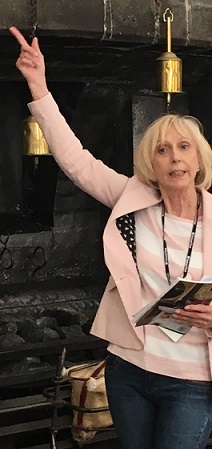Home Study Recreation Leadership Course
Become an effective Recreation Leader
Take the first step toward a career; or enhance your existing experience to work with any demographic group in the field of leisure leadership.
Course Structure
There are 7 lessons as follows:
1. Introduction to Leadership (nature, scope, styles, differentiation from management, supervision, planning etc).
AIM: Describe the nature and scope of Leadership.
2. Leadership Characteristics/Qualities.
AIM: Determine the qualities which are required in a leader, in different leadership situations, including the workplace, recreation industries and developmental applications.
3. Interpersonal Relationships.
AIM: Manage interpersonal relationships in support of effective leadership.
4. Communication Skills.
AIM: Communication leadership messages effectively to those you lead.
5. Team Building.
AIM: Explain methods that may be used for effective team building by a leader.
6. Systematic and Lateral Thinking.
AIM: Select appropriate thought processes to follow in order to deal with different leadership problems.
7. Applications.
AIM: lead teams through innovative and creative processes
LEADERSHIP MAKES A DIFFERENCE
 Leadership is important in society generally. Leaders are needed, and found in all aspects of our daily life, from the workplace to the school ground; and from the social club to government. When leadership is good, there is an increased probability of things being achieved with greater efficiency, and a higher level of satisfaction amongst all concerned.
Leadership is important in society generally. Leaders are needed, and found in all aspects of our daily life, from the workplace to the school ground; and from the social club to government. When leadership is good, there is an increased probability of things being achieved with greater efficiency, and a higher level of satisfaction amongst all concerned.
Good leadership is however not something a person is born with. Certain personal traits, such as self confidence, may give some an advantage over others; but effective leadership requires more than simply a forceful personality that is capable of dominating everyone else.
A leader is not the same as a manager or supervisor. This is a key point to remember. Managers and supervisors are able to cause things to happen because they have legal authority to enforce orders. Leaders do not cause things to happen because of any legal authority.
People follow leaders of their own free will; and leadership skills are those skills that allow a leader to effectively communicate with, and influence the actions of their followers. Leaders are people who are in a position of power, and who use that position to influence the environment in which they abide, and the others who share that environment.
Leadership contributes to order, motivates productivity, and influences the way in which resources (human and material) are used.
Positive leadership enables things to happen. The leader in effect influences the environment in a way that encourages certain actions. Negative leadership disables things from happening.
Leaders have an effect upon the environment through different types of actions:
- By setting goals (eg. Time limits, production standards, budgets, etc)
- By determining values (eg. Levels of quality, ethical behaviour, reliability, etc)
- By establishing concepts (eg. Different ways of doing things, Project reviews, new management approaches)
In a recreational context good leadership encourages and inspires both staff and participants to extend their recreational experience whilst at the same time ensuring safety practices that limit personal risk.
QUALITIES OF A PROFESSIONAL LEADER
Not all leaders (in fact very few), are likely to have what might be all of the desirable qualities of a leader; however the following qualities are usually considered desirable in a leader:
- A real interest in people. Leadership is a person to person business which requires a positive attitude about people from the leader.
- Imagination and enthusiasm. Imagination allows the leader to adapt to situations which are continuously changing. Enthusiasm is contagious, and by injecting enthusiasm into the participants, the leader can increase the participants’ enjoyment and involvement in activities.
- Sensitivity. Problems, disagreements, apathy, etc. all arise from time to time. The leader must be quick to sense these things if they are going to be stopped before they grow.
- Honesty and Fairness. Without these things, the respect at least, of some of the participants is lost, and the leadership role can become ineffective.
- Respect for one's self, and others. Self respect and self confidence are very important. Poor self respect does little to secure the participants is lost and the leadership role can become ineffective.
- Patience and Persistence. Do not become discouraged. Some people you lead are quick to follow...some are impossibly slow.
- Know your limitations. It is dangerous for a leader to try to do something s/he is not capable of - that will almost certainly dent the confidence of the participants.
- Be able to make decisions. Often a poorer decision made quickly and acted on is better than a better decision which you take a long time to act on. People are often impatient. Do not delay decisions too long.
- Be able to evaluate situations in their proper perspective.
- Be able to organise, administer and plan. Even though these functions might sometimes be the job of someone other than the recreation leader; they are an integral part of the leader's job and the leader almost certainly will find him/her called to undertake these tasks at times.
Course Duration: 100 hours
WHAT NEXT?
Register to Study - Go to “It’s Easy to Enrol” box at the top of the page and you can enrol now.
or
Get Advice – Email us at info@acsedu.co.uk OR
Use our FREE COUNSELLING SERVICE to contact a tutor
CLICK TO CONTACT US